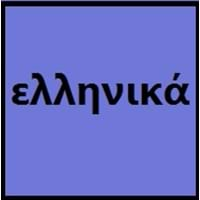Countries
European Union, Ireland
Cyprus, European Union, Greece
National Language
Ireland
Albania, Cyprus, Egypt, France, Greece, Italy, Romania, Turkey, Ukraine
Second Language
Ireland
Roman Empire
Speaking Continents
Europe
Asia, Europe
Minority Language
United Kingdom
Albania, Armenia, Australia, Hungary, Italy, Romania, Turkey, Ukraine
Regulated By
Foras na Gaeilge
Center for the Greek language (Κέντρον Ελληνικής Γλώσσας)
Interesting Facts
- In Irish language, there are no exact words for "yes" or "no".
- There are different set of numbers for counting humans and another set for counting non-humans in Irish Language.
- Greek is the longest documented language of all the Indo-European Langauges.
- The official language of education in the Roman Empire was Greek.
Similar To
Not Available
Armenian
Derived From
Not Available
Latin
Alphabets in
Irish-Alphabets.jpg#200
Greek-Alphabets.jpg#200
Scripts
Latin
Arabic, Latin
Writing Direction
Left-To-Right, Horizontal
Left-To-Right, Horizontal
Hello
Dia dhuit
γεια σας (geia sas)
Thank You
Go raibh maith agat
ευχαριστώ (ef̱charistó̱)
How Are You?
Conas atá tú ?
πώς είσαι (pó̱s eísai)
Good Night
Oíche mhaith
Καληνυχτα (Kali̱nychta)
Good Evening
Tráthnóna maith duit
καλησπέρα (kali̱spéra)
Good Afternoon
Tráthnóna maith duit
Καλὸ ἀπόγευμα (Kaló apóyevma)
Good Morning
Dia dhuit ar maidin
καλημέρα (kali̱méra)
Please
le do thoil
παρακαλώ (parakaló̱)
Sorry
Tá brón orm
συγνώμη (sygnó̱mi̱)
I Love You
Is breá liom thú
Σε αγαπώ (Se agapó̱)
Excuse Me
Gabh mo leithscéal
Με συγχωρείτε! (Me synhoríte)
Dialect 1
Connacht Irish
Cappadocian Greek
Where They Speak
Connacht
Greece
How Many People Speak
Not Available
Dialect 2
Munster Irish
Griko
Where They Speak
Munster
Italy
How Many People Speak
Not Available
Dialect 3
Ulster Irish
Mariupol
Where They Speak
Ulster
Ukraine
Speaking Population
Not Available
Second Language Speakers
Not Available
Native Name
Gaeilge (na hÉireann) / An Ghaeilge
ελληνικά
Alternative Names
Erse, Gaeilge, Gaelic Irish
Ellinika, Graecae, Grec, Greco, Neo-Hellenic, Romaic
French Name
irlandais moyen
grec moderne (après 1453)
German Name
Mittelirisch
Neugriechisch
Pronunciation
[ˈɡeːlʲɟə]
[eliniˈka]
Ethnicity
Irish people
Greeks or Hellenes
Language Family
Indo-European Family
Indo-European Family
Branch
Goidelic
Not Available
Early Forms
Primitive Irish, Old Irish, Middle Irish, Classical Irish, Irish
Proto-Greek, Mycenaean Greek, Ancient Greek, Koine Greek and Medieval Greek
Standard Forms
An Caighdeán Oifigiúil
Modern Greek
Language Position
Not Available
Signed Forms
Irish Sign Language
Greek Sign Language
Scope
Individual
Individual
ISO 639 6
Not Available
ells
Glottocode
iris1253
gree1276
Linguasphere
50-AAA
56-AAA-a
Language Type
Living
Living
Language Linguistic Typology
Verb-Subject-Object
Subject-Verb-Object
Language Morphological Typology
Fusional
Fusional, Synthetic
Irish and Greek Greetings
People around the world use different languages to interact with each other. Even if we cannot communicate fluently in any language, it will always be beneficial to know about some of the common greetings or phrases from that language. This is where Irish and Greek greetings helps you to understand basic phrases in Irish and Greek language. Irish word for "Hello" is Dia dhuit or Greek word for "Thank You" is ευχαριστώ (ef̱charistó̱). Find more of such common Irish Greetings and Greek Greetings. These greetings will help you to be more confident when conversing with natives that speak these languages.
Irish vs Greek Difficulty
The Irish vs Greek difficulty level basically depends on the number of Irish Alphabets and Greek Alphabets. Also the number of vowels and consonants in the language plays an important role in deciding the difficulty level of that language. The important points to be considered when we compare Irish and Greek are the origin, speaking countries, language family, different greetings, speaking population of these languages. Want to know in Irish and Greek, which language is harder to learn? Time required to learn Irish is 36 weeks while to learn Greek time required is 44 weeks.





